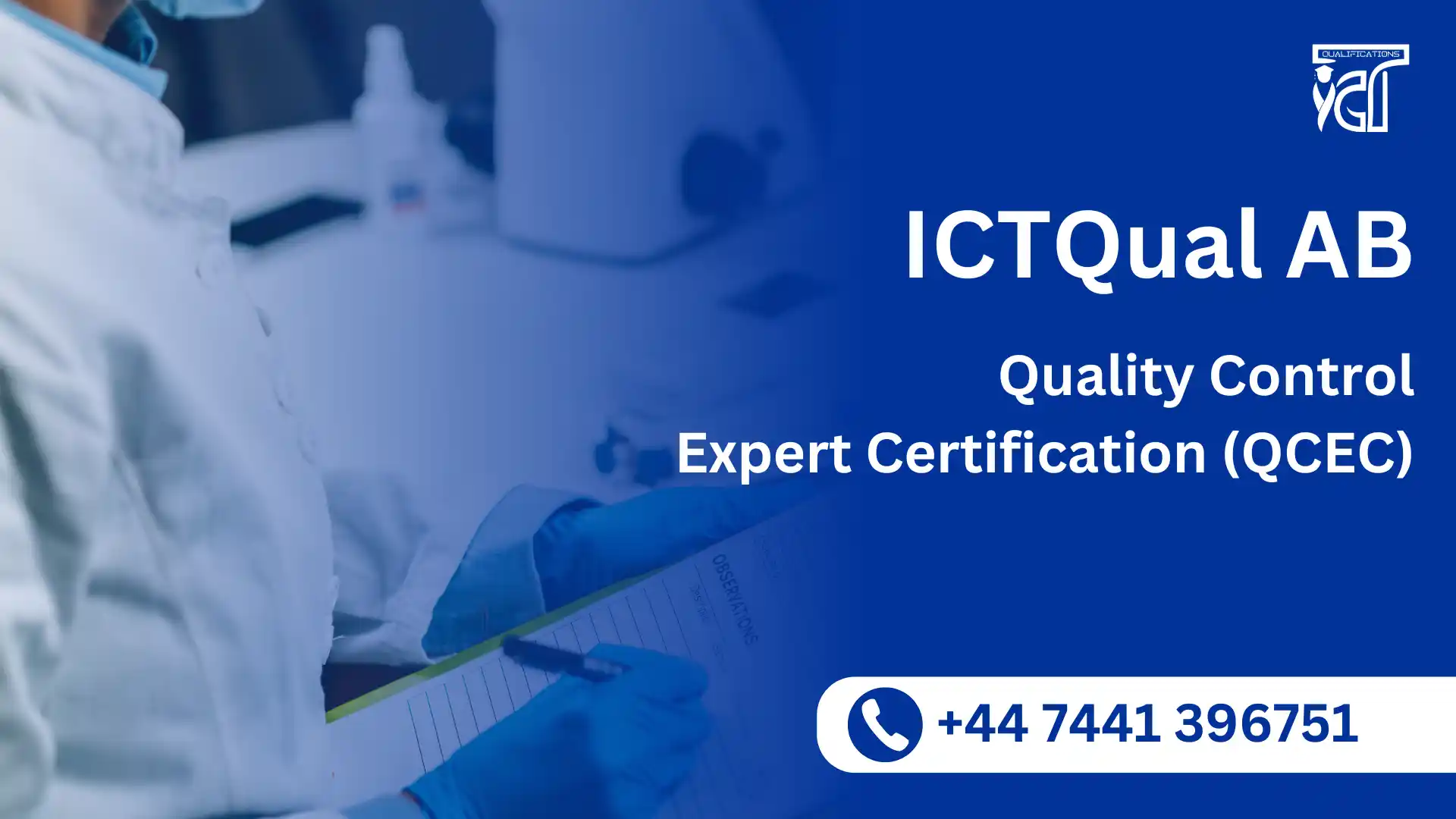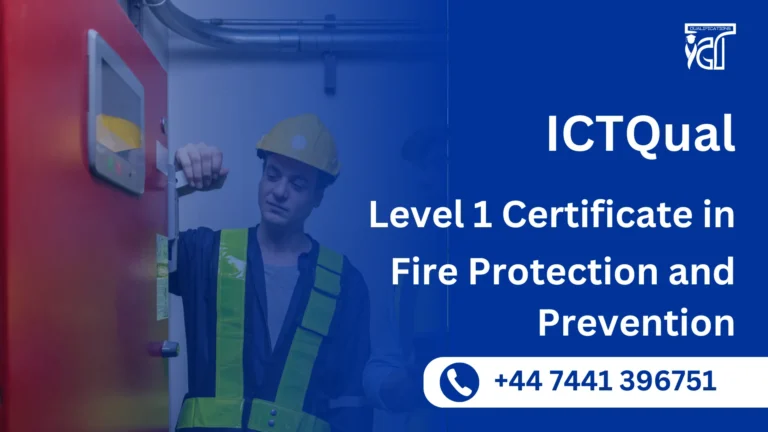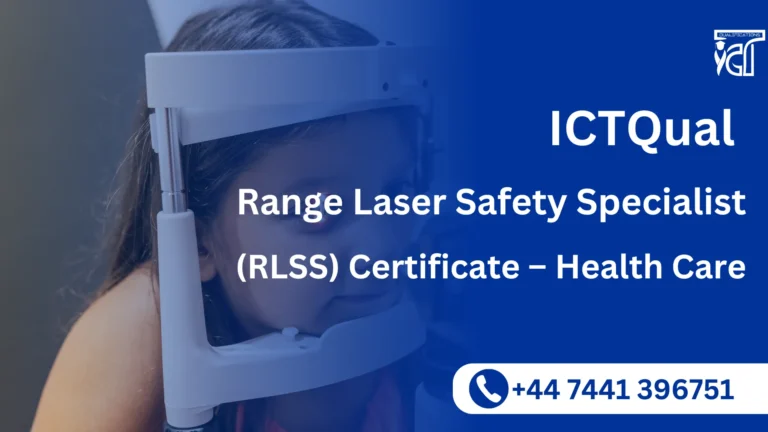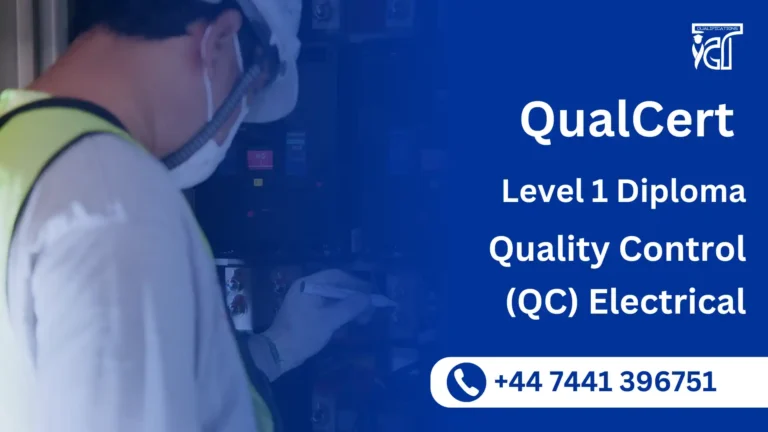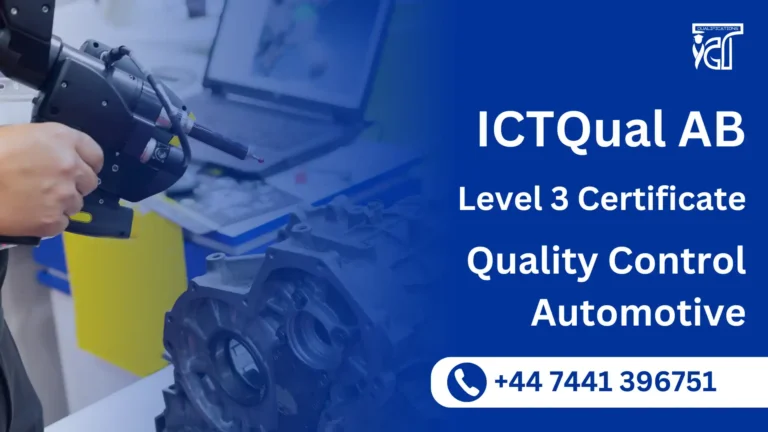The ICTQual AB Quality Control Expert Certification (QCEC) is a globally recognized qualification designed for professionals aiming to master the principles and practices of quality control in modern organizational environments. This advanced-level course empowers learners with the knowledge and tools required to maintain, evaluate, and improve quality across systems, products, and services. It is ideal for those looking to take on leadership roles in quality assurance, compliance, operations, or production management.
Throughout the program, learners will explore essential topics such as inspection techniques, statistical quality control, defect analysis, corrective action planning, and continuous improvement methodologies such as Six Sigma and Total Quality Management (TQM). The course also provides a strong grounding in international standards like ISO 9001 and emphasizes how to design and monitor effective quality control systems in various sectors, including manufacturing, healthcare, logistics, and service industries.
Upon completion of the ICTQual AB Quality Control Expert Certification, participants will be equipped with expert-level competencies to manage quality processes, lead audit teams, resolve non-conformance issues, and contribute to overall business excellence. This certification not only enhances your technical expertise but also elevates your professional credibility, opening doors to senior roles and consultancy opportunities in quality-driven organizations.
ICTQual AB Quality Control Expert Certification (QCEC)
This qualification, the ICTQual AB Quality Control Expert Certification (QCEC), consists of 5 mandatory units.
- Fundamentals of Quality Control and Assurance
- Inspection Techniques and Testing Procedures
- Statistical Process Control and Quality Data Analysis
- Quality Management Systems and Compliance Standards
- Continuous Improvement, Root Cause Analysis, and Corrective Actions
Learning Outcomes for the Study Units:
Fundamentals of Quality Control and Assurance
- Understand the principles and objectives of quality control and quality assurance
- Differentiate between quality control, assurance, and total quality management
- Identify the role of quality in various industries and production environments
- Recognise key quality terminologies and performance indicators
- Demonstrate awareness of the cost of quality and its impact on operations
Inspection Techniques and Testing Procedures
- Apply various inspection methods for materials, components, and finished products
- Understand destructive and non-destructive testing techniques
- Interpret technical drawings, specifications, and inspection plans
- Use basic measuring tools and equipment to perform quality checks
- Record and report inspection results in line with quality protocols
Statistical Process Control and Quality Data Analysis
- Understand the role of statistics in monitoring and improving quality
- Construct and interpret control charts for variable and attribute data
- Identify process variation and determine capability indices (Cp, Cpk)
- Apply sampling methods and evaluate data trends
- Use data-driven analysis to support decision-making and quality improvement
Quality Management Systems and Compliance Standard
- Understand the structure and purpose of a Quality Management System (QMS)
- Align documentation and procedures with ISO 9001 and other relevant standards
- Support internal and external audit processes
- Maintain accurate records, quality manuals, and operational procedures
- Ensure compliance with industry-specific quality regulations and client requirements
Continuous Improvement, Root Cause Analysis, and Corrective Actions
- Apply the principles of continuous improvement and lean quality
- Conduct root cause analysis using tools such as 5 Whys and Fishbone diagrams
- Develop and implement effective corrective and preventive action plans (CAPA)
- Evaluate the impact of quality issues and recommend sustainable solutions
- Promote a culture of quality and proactive problem-solving within teams
The ICTQual AB Quality Control Expert Certification (QCEC) is designed for professionals who are passionate about maintaining high-quality standards and driving operational excellence. This certification is best suited for individuals who aim to lead quality control initiatives, optimize systems, and ensure regulatory compliance across a wide range of industries.
This course is ideal for:
- Professionals currently working in quality control or quality assurance roles who want to gain advanced credentials
- Production supervisors and operations managers looking to strengthen their skills in inspection, process control, and defect prevention
- Engineers and technical staff seeking to understand and apply international quality standards like ISO 9001
- Auditors and compliance officers who oversee internal quality assessments and regulatory compliance
- Individuals transitioning into quality management roles who need practical, job-ready tools and frameworks
- Consultants and freelance specialists who offer quality improvement services to organizations
- Manufacturing and industrial workers aiming to move into supervisory or leadership roles in quality departments
- Business professionals interested in integrating quality systems into wider performance management strategies
- Anyone pursuing a career in quality leadership across sectors such as manufacturing, logistics, healthcare, automotive, or food production
Whether you’re advancing your career or building your expertise from the ground up, this course provides the skills and recognition to lead in quality-focused environments.
Entry Requirements
Register Now
Qualification Process
Qualification Process for the ICTQual AB Quality Control Expert Certification (QCEC)
- Self-Assessment:
Begin by evaluating your eligibility to ensure you meet the qualification requirements, including work experience, knowledge, and language proficiency. - Registration:
Complete your registration by submitting the required documents, including a scanned copy of a valid ID, and paying the registration fee. - Induction:
An assessor will conduct an induction to confirm your eligibility for the course and explain the evidence requirements. If you do not meet the criteria, your registration will be canceled, and the fee will be refunded. - Assignmnets & Evidence Submission:
Provide all assignmnets and the necessary evidence based on the assessment criteria outlined in the course. If you are unsure of the required evidence, consult with the assessor for guidance on the type and nature of evidence needed. - Feedback and Revision:
The assessor will review your submitted evidence and provide feedback. Evidence that meets the criteria will be marked as “Criteria Met,” while any gaps will be identified. You will be asked to revise and resubmit if needed. - Competence Evidence:
Submit final evidence demonstrating that all learning outcomes have been met. This evidence will be marked as “Criteria Met” by the assessor once it is satisfactory. - Internal Quality Assurance (IQA):
The Internal Quality Assurance Verifier (IQA) will review your evidence to ensure consistency, quality, and compliance with standards. - External Verification:
The IQA will submit your portfolio to ICTQUAL AB External Quality Assurance Verifiers (EQA) for final confirmation. The EQA may contact you directly to verify the authenticity of your evidence. - Certification:
Upon successful completion of all checks, ICTQUAL AB will issue your official certificate, confirming that you have attained the ICTQual AB ICTQual AB Quality Control Expert Certification (QCEC).

